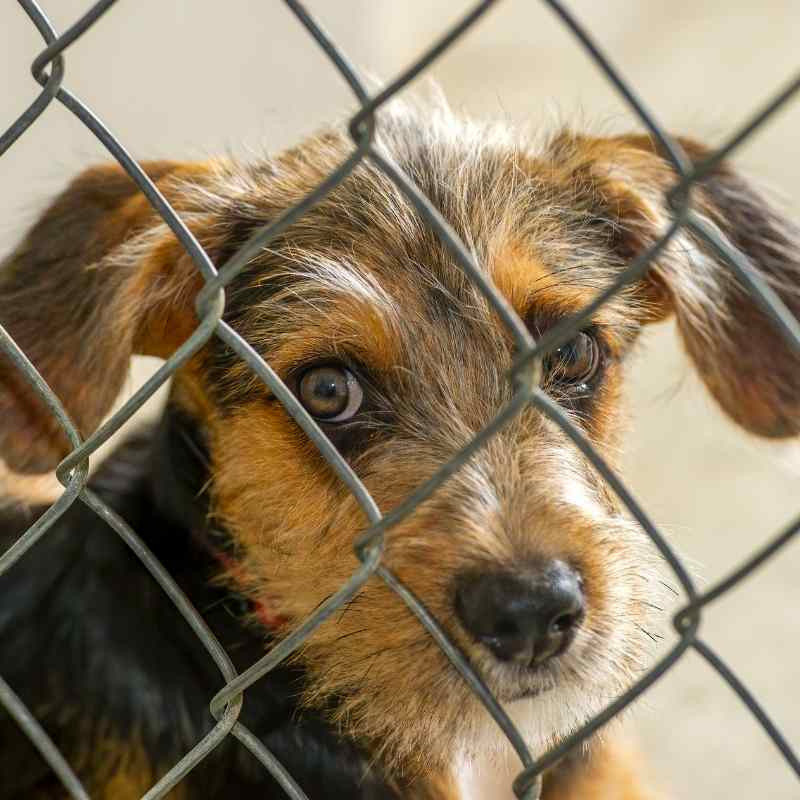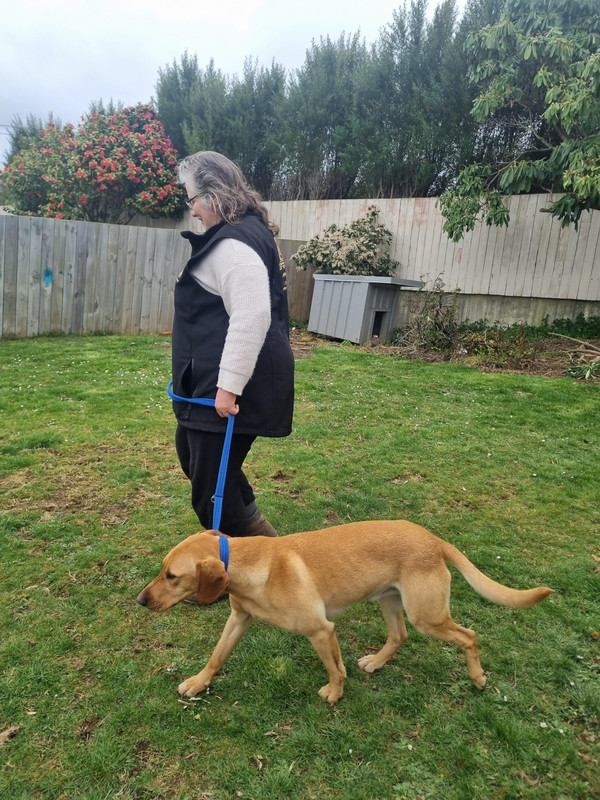Rescue Dog Behaviour Training
There are different reasons why dogs are brought to rescue centres. They can range from rescue centres removing dogs from a home due to neglect or abuse, dog owners being unable to cope with the dog's behaviour, or the dog's owner has passed away. Many dogs brought to rescue centres have had traumatic experiences that make it very difficult for these dogs to trust humans. Additionally, the traumatic experience of being rehomed and entering a very noisy environment with very high activity levels can make the dog feel threatened and alienated. A dog feeling threatened can lead to increased levels of fear and result in a myriad of unwanted behaviours, e.g. hyperactivity, excessive barking, excessive chewing, and aggression. My dog behaviour training can eliminate these unwanted behaviours in your rescue dog.
Rescue Dog Trainer Dunedin
Successfully rehoming any rescue dog requires seeing the world from the dog's perspective. It is essential to know that every dog lives only in the moment. In a shelter situation, the dog does not know that this situation is temporarily only. Additionally, the dog does not understand that the unwanted behaviour, which has been unintentionally positively reinforced by the previous owner, is the very behaviour that causes the new owner to bring the dog back to the shelter.
This unwanted behaviour is especially true for dogs who have been through several unsuccessful rehoming attempts, so-called Yo-yo dogs. In these cases, the dogs are even more desperate to find a home where they are respected, accepted and loved. Yo-yo dogs have even greater levels of anxiety and desperation because they do not understand why they are repeatedly returned to the shelter.
And since the unwanted behaviour has been unintentionally rewarded, the yo-yo dog keeps doing the unwanted behaviour because it is convinced that that is exactly the behaviour the owner wants.
That leaves the yo-yo dog even more confused about why it has been returned to the shelter. Added to this is the dog's frustration about being repeatedly returned to the shelter, and when rehomed again, it tries even harder to please its new owner. The new owner must send the right signals to the dog to break this cycle. These principles apply to all dogs, not just to rescue dogs. That's where dog behaviour training can benefit you and your rescue dog.
Training a Rescue Dog
What, then, are the right signals? To find the answer to this question, we need to look at the wolf pack and how the Alpha pair, the Alpha male and the Alpha female, lead their pack. Dogs have descended from the wolf. As we humans have our language by which we communicate, so have dogs, a language that unites them all, enabling them to communicate effectively with each other. In this context, it is crucial to understand the leadership structure within a wolf pack; the four pillars of leadership are the Alpha male and the Alpha female leading their pack members by. The structure within a wolf pack is hierarchical. Deeply anchored in the dog's mind is that there must be a leader in a wolf pack. While our domesticated dogs have been removed from the wolf pack, the wolf has not been removed from the dog. Translated into the domestic situation and applied to the human/dog relationship, this means that the same leadership signals the Alpha male and the Alpha female send to their pack members to establish and maintain their leadership status need to be the same in the domestic situation. Since there has to be a pack leader in the dog's mind, the dog will assume leadership when it does not get the right leadership signals from its owner/owner's family (or its pack). A plethora of behavioural issues arise in dogs in the pack leadership position as dogs cannot cope with the responsibility of looking after the human pack members in an environment and a society it does not understand. Applying the four pillars of leadership will enable you, the dog owner, to effectively communicate with your dog in a language your dog understands.
It will help you to build the trusted relationship with your dog that you have longed for so long.
Rescue dog training fee: $155.00 per session.
Rescue dog training mileage: under 10km/ return, a minimum fee of $15.00 applies. For a travel distance of more than 10km $1.50 per km/ return is applied additionally to the dog training fee.
Rescue dog training travel time: under 10km/ return, a minimum fee of $15.00 applies. For a travel distance of more than 10km $1.50 per km/ return is applied additionally to the dog training fee.
Contact expert dog trainer Dunedin, Paws4Success, today to transform your rescue dog.


